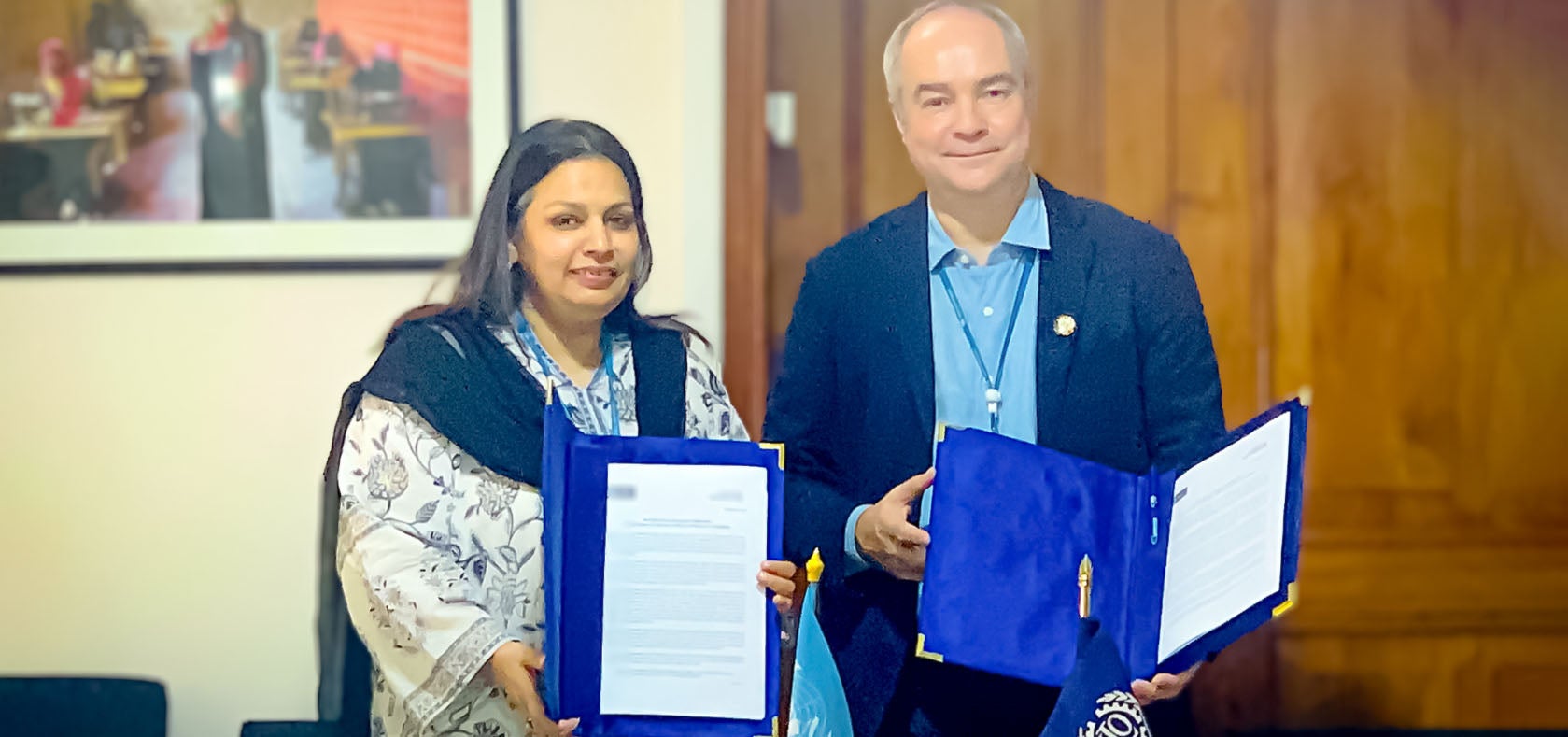UN Women and ILO deepen cooperation to advance women’s economic empowerment in Bangladesh
Date:
Author: Shararat Islam

UN Women and ILO have signed an inter-agency agreement for the period 2022-2026 to advance gender equality by working for women’s economic empowerment in Bangladesh.
Bangladesh, which has experienced accelerated income growth in recent decades, has made progress on its health, education and several gender indicators. However, gender discriminatory social norms and harmful practices, occupational segregation, the lack of access to resources, technology and skill-based training, and the burden of unpaid care work, remain significant barriers to the economic empowerment of women. The COVID-19 pandemic has further aggravated the systematic deprivation of women in terms of jobs, care and climate.
As emphasized in the Government’s 8th Five-Year Plan (FYP) for 2020-2025, women’s economic empowerment is critical for inclusive growth. This requires ensuring equal opportunities for men and women in the labour force, reducing the gender wage gap and eliminating discrimination at work.
UN Women and ILO have long been working with the Government to foster decent work, equal pay and access to resources for women. Both agencies excel in their respective areas of work: UN Women has cultivated strong civil society partnerships and ILO has close working relationship with employers’ and workers’ organizations. Combining these comparative advantages, UN Women and ILO are ideally positioned to promote voice, agency and choice for women and girls in Bangladesh.
“Partnerships are critical to advance gender equality and empower women. We are very pleased to sign the Memorandum of Understanding with ILO to advance women’s economic empowerment as we collectively implement the UN Sustainable Development Cooperation Framework 2022-2026. We look forward to an effective collaboration that will promote women’s voice, agency and choice at all levels,” said Gitanjali Singh, Head of Office, a.i., UN Women Bangladesh.
This inter-agency agreement is in line with the Global Memorandum of Understanding signed by UN Women and ILO in Geneva in 2011. It draws on the following areas to support the Government of Bangladesh and social partners during the period of the United Nations Sustainable Development Cooperation Framework (UNSDCF) 2022-2026:
- Provide technical assistance for engendering policies, strategies and action plans for women’s economic empowerment and inclusive and sustainable development
- Promote gender-transformative policies and programmatic solutions to address women’s unpaid carework, building on the 2021 Time Use Survey results
- Promote decent work standards in key sectors and the informal economy for women workers and employment for young women, including women with disabilities and Indigenous women. This will involve strengthening technical and vocational skills development in collaboration with the Ministry of Labour and Employment, the Ministry of Education and the national women’s machinery in order to foster women’s entrepreneurial development.
- Enhance women’s economic leadership through collective voice and agency with trade unions, workers’ unions and employers’ organizations to shape post-COVID economic recovery
- Address – and ultimately prevent – violence (especially gender-based-violence) and sexual harassment (especially sexual harassment) in the workplace
- Organize the Employment Summit in 2022, with women’s economic empowerment as a cross-cutting focus, and support national organizations to implement the Summit’s recommendations
- Support the Government to implement gender-responsive services for returnee women migrant workers and to ensure safe and orderly migration
- Strengthen the -Bangladesh Bureau of Statistics (BSS) to generate, analyse and disseminate gender statistics, particularly data from the Labour Force Survey, in order to secure women’s livelihoods